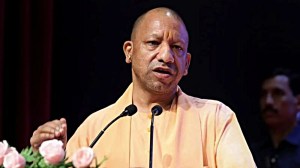SC order has Cong, Left MPs worried, say it raises disturbing, larger issue
The Supreme Court’s interim order advancing the date of the Jharkhand Assembly floor test to March 11, and particularly its direction t...

The Supreme Court’s interim order advancing the date of the Jharkhand Assembly floor test to March 11, and particularly its direction that proceedings of the Assembly be videographed, is set to create a stir in both Houses of Parliament tomorrow.
Several MPs of the Congress and Left parties, it’s learnt, plan to protest the ‘‘interference’’ in the rights of the legislature. Sources said that Lok Sabha Speaker Somnath Chatterjee, a legal luminary himself, is also ‘‘very disturbed’’ about the larger implications of the apex court’s order and may express his views in the House tomorrow.
The Congress, caught on the wrong foot after Jharkhand Governor Syed Sibtey Razi’s widely criticised move of hurriedly swearing in Shibu Soren as chief minister, was circumspect in its reaction to today’s court order. But individual Congressmen, sources said, are likely to join Left MPs when the issue is raised tomorrow.
At the party’s official briefing, AICC spokesman Anand Sharma did not directly attack the court order but focussed on ‘‘exposing the hypocrisy and double standards’’ of the BJP.
He pointed out that the 13-day Vajpayee government in 1996 had nominated two Anglo-Indian members to the Lok Sabha and so had the Nitish Kumar government in Bihar in 2000. He also accused the BJP of undermining the ‘‘dignity and authority’’ of Parliament through ‘‘pandemonium and subversion.’’
On the specific merits of the Supreme Court order, Sharma told The Indian Express: ‘‘There are very well-defined demarcations between the the executive, judiciary and legislature. There are areas where the judiciary can step in but the conduct of proceedings in Parliament and Assemblies is within the domain of the legislature. The privileges of legislatures have to be recognised and respected.’’
Several other MPs, speaking off-the-record, felt today’s order had ‘‘far reaching implications’’ and if it became a precedent it would ‘‘open the floodgates’’ for judicial encroachment into the rights of the legislature. While they find it difficult to defend the conduct of the Governor, MPs said the Supreme Court had given ‘‘an emotional interpretation because of the wrongs committed by the Governor.’’
While Congress MPs, in the absence of a party decision, were unwilling to criticise the order openly, the Left is likely to be more unequivocal on the issue.
The leader of the CPI(M) in Rajya Sabha Nilotpal Basu described the apex court decision as ‘‘very, very unfortunate’’ for having set ‘‘a very bad precedent.’’
Pointing out that the order violated Article 122 relating to Parliament and Article 212(2) to state Assemblies, Basu said: ‘‘Just as Parliament cannot direct the timing or conduct of court cases, no officer of legislature can be given any direction by any court of law on anything pertaining to the functioning of legislatures.’’ The Left MPs are likely to discuss the issue tomorrow morning and take it up later in the House, he added.
Hailing the SC order, BJP spokesman V K Malhotra described it as a karara tamacha (tight slap) on the face of Congress, UPA government and Sonia Gandhi’s strategy.
‘‘We welcome the SC order of not allowing any nomination to take place and also to ensure that members are provided complete security so that elected members are able to vote when the confidence vote takes place,’’ Malhotra said.
BJP leaders asserted that they would stoutly defend the court order if the issue was raised in Parliament. ‘‘If there is a case of flagrant violation of law by a Governor, the court has a right to step in,’’ BJP MP Ravi Shankar Prasad said.
The BJP, he indicated, would like the order to be seen in the specific context of Jharkhand and not as a precedent that posed a threat to the judiciary-legislature dynamics in the long term.
Photos


- 01
- 02
- 03
- 04
- 05





























